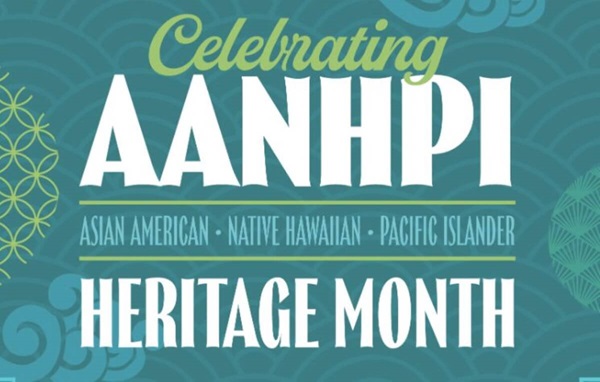Asian American Native Hawaiian Pacific Islander (AANHPI) Heritage Month has its roots in anti-Asian hate. It was because of the murder of M.Y. Lee in the 1800s and the persistence of his great-granddaughter, Jeannie Jew, that a resolution was introduced to Congress in 1977 for the establishment of Pacific/Asian American Heritage Week. It was officially designated Asian/Pacific American Heritage Month in 1992 and redesignated AANHPI in 2022.
Anti-AANHPI hate is not new. For as long as Asians have been in the United States, they have been seen as perpetual foreigners not to be trusted, with resultant tragic consequences. Such discrimination can be traced back to the over ten thousand Chinese laborers who, despite the enormity of their contribution to the building of the transcontinental railroad, were targeted by anti-Chinese legislation instead.
The Los Angeles Chinese massacre of 1871; the overthrow of Queen Lili’uokalani’s monarchy in the Hawaiian islands in 1893; the murder of Vincent Chin in 1982; the post-9/11 rise in hate crimes towards people of Middle Eastern, South Asian, and Arab descent; the anti-Asian hate and violence during the COVID-19 pandemic, including the murder of eight Asian women in Atlanta, Georgia in 2021; history, past and present, is replete with such examples of discrimination and hate.
History also makes clear the critical role education plays in combating systemic racism, bigotry, and hate. Currently, 18 states include zero content ¬– none whatsoever – on AANHPI persons and communities in their K-12 history curriculum.
Other states, while addressing significant events like the internment of Japanese Americans during World War II and the Chinese Exclusion Act of 1882, lack representation and content to the over 40 ethnic groups, cultures, histories, experiences, and 100+ languages that are represented by the 24.7 million Asian Americans, Native Hawaiian, and Pacific Islanders who call the United States home today.
There are gains. Connecticut recently passed legislation requiring AAPI history in K-12 classrooms. Yet, there are challenges. According to “Asian Americans Advancing Justice,” more than 100 state-level bills have been introduced to restrict teaching diversity as being linked to and promoting critical race theory.
The purpose of Asian American Native Hawaiian Pacific Islander Heritage Month is to recognize the contribution and positive influence of Asian Americans, Native Hawaiians, and Pacific Islanders to the shared fabric of the United States.
This AANHPI Month, make time to engage with a bit of history you might have missed out on. Learn about the resilience, determination, and contributions of AANHPI persons and communities. Because their fight for basic human rights and dignity is a part of our collective fight and right to call the United States home.
Not sure where to start? Keep reading.
Get to know AANHPI activists who fought for marginalized people of all communities:
Eqbal Ahmad (1933-1999): Pakistani political scientist, writer, and anti-colonial activist known for his advocacy for social justice and liberation movements globally.
George Helm Jr. (1950-1977): Native Hawaiian musician and activist known for his leadership in the Hawaiian sovereignty movement and efforts to protect the island of Kaho’olawe from the U.S. military using the island as a bombing range.
Grace Lee Boggs (1915-2015): Chinese American author, philosopher, and social activist devoted to civil rights, labor, and community organizing.
Haunani-Kay Trask (1949-2021): Native Hawaiian scholar, poet, and activist celebrated for her outspoken advocacy for Hawaiian sovereignty and indigenous rights.
Kiyoshi Kuromiya (1943-2000): Japanese American civil rights, anti-war, gay liberation, and HIV/AIDS activist. Aid to Martin Luther King Jr. and a co-founder of the Gay Liberation Front Philadelphia.
Larry Itliong (1913-1977): Filipino American labor leader and organizer, instrumental in the Delano grape strike and co-founding United Farm Workers alongside Cesar Chavez.
Patsy Matsu Mink (1927-2002): Japanese American politician. The first woman of color and Asian-American woman elected to the US Congress. She served in the US House of Representatives as a member of the Democratic Party for 24 years working on gender equality and educational reform. She was the primary author of Title IX which prohibits gender discrimination in any educational institutions receiving federal government funding, which passed in 1972.
Yuri Kochiyama (1921-2014): Japanese American civil rights activist known for her activism in Black, Asian American, and Puerto Rican movements and her friendship with Malcolm X.
Additional Resources:
-
General Conference 2020/2024 approved a formal apology for the denomination’s role in the 1893 overthrow of the Hawaiian monarchy.
-
General Conference 2020/2024 Delegates decry hate crimes against Asian Americans
-
Background on Asian American, Native Hawaiian, and Pacific Islander Heritage Month.
-
Public School Districts Face Threats and Political Pressure to Ban Books.
Aimee Hong is the Senior Executive Director of Education and Engagement for the General Board of Church and Society. She is the Church and Society liaison for the Korean Caucus, the Korean Ministry Plan and serves on the Board of Next-generation Korean Americans in the United Methodist Church (NEXUS). Originally published by Church and Society. Republished with permission by ResourceUMC.

